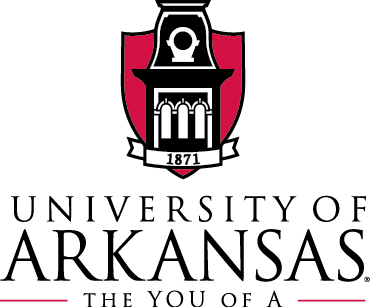 Michael Tilley from The City Wire says the 188th Fighter Wing has recieved approval to spend to $12.5 million to build a facility that could help the unit become an ISR Center of Excellence.
Michael Tilley from The City Wire says the 188th Fighter Wing has recieved approval to spend to $12.5 million to build a facility that could help the unit become an ISR Center of Excellence.Ozarks At Large
 Michael Tilley from The City Wire says the 188th Fighter Wing has recieved approval to spend to $12.5 million to build a facility that could help the unit become an ISR Center of Excellence.
Michael Tilley from The City Wire says the 188th Fighter Wing has recieved approval to spend to $12.5 million to build a facility that could help the unit become an ISR Center of Excellence.The university system's board voted yesterday to start offering online courses. And, the state departments of health and education partner on educating schools about the dangers of heat-related illnesses.
 Ahead on this edition of Ozarks: a walk around the trails at Lake Fayetteville will take you past acres of charred land. We learn about the benefits of prescribed burns such as these. Plus not one, but two area towns are in the running to take over the March Madness bracket of the Greatest Southern Town. And, we climb a tree to visit the serene world of a children's treehouse, and get ready for Spring Break with options for movie lovers.
Ahead on this edition of Ozarks: a walk around the trails at Lake Fayetteville will take you past acres of charred land. We learn about the benefits of prescribed burns such as these. Plus not one, but two area towns are in the running to take over the March Madness bracket of the Greatest Southern Town. And, we climb a tree to visit the serene world of a children's treehouse, and get ready for Spring Break with options for movie lovers.
Trading on the popularity of the NCAA Tournament, the magazine Garden and Gun has its own bracket. This one pits southern towns against each other.
 We go off into our own world with Josh Hart, a carpenter and owner of Natural State Treehouses, who builds play structures for people of all ages.
We go off into our own world with Josh Hart, a carpenter and owner of Natural State Treehouses, who builds play structures for people of all ages.
 It’s that time of year, like it or not, when foresters and conservationists burn the land. But as Jacqueline Froelich reports, prescribed burning not only helps to restore and maintain native habitat, it can help to sequester carbon.
It’s that time of year, like it or not, when foresters and conservationists burn the land. But as Jacqueline Froelich reports, prescribed burning not only helps to restore and maintain native habitat, it can help to sequester carbon.To adopt a pet at the Fayetteville Animal Shelter as it will be closed Saturday for the installation of new flooring. Plus a couple of events as the weekend nears.
 Roby Brock with out content partner Talk Business Arkansas leads a roundtable discussion with Grant Tennille, director of the Arkansas Economic Development Commission, to talk jobs and the economy, including a state workforce program and minimum wage.
Roby Brock with out content partner Talk Business Arkansas leads a roundtable discussion with Grant Tennille, director of the Arkansas Economic Development Commission, to talk jobs and the economy, including a state workforce program and minimum wage.The University of Arkansas Libraries formally opened the papers of Senator Dale Bumpers to researchers yesterday.
As promised, the state legislature overrode a line-item veto by Governor Mike Beebe to allow sand used in natural gas drilling to be exempt from sales tax. And, several organizations through the state accrue grant funding.
Latest Edition of Ozarks at Large
Friday, May 9, 2014
Ahead on this edition of Ozarks, Michael Tilley talks about a new owner for some long-abandoned real estate in Fort Smith, and the official announcement of a Whole Foods in Fayetteville. Plus, Cletus Got Shot gets ready to perform at a few festivals in the next month.
Our tech ambassador, Tyrel Denison, gets us up to date on some of the handiest apps for our smartphones.
"Numb Bears" by Of Monsters and Men
From Walking Dead to Downton Abbey . . . TV got better this year.
The city of Fayetteville officially unveils a new anti-litter and beautification organization, the Fayetteville Farmers' Market gears up for a winter market, and governor Mike Beebe warns that legislators in Washington shouldn't shift funding responsibility for mandatory programs to the states.
Roby Brock from Talk Business discusses Governor Mike Beebe's meeting with the President and Vice President last week, which was an effort to promote compromise with regard to the issue of the fiscal cliff.
A group of researchers at the University of Arkansas has found a system to store thermal energy that is both more efficient and cost effective than what power plants are currently using. Christina Thomas visits the lab to learn more.





